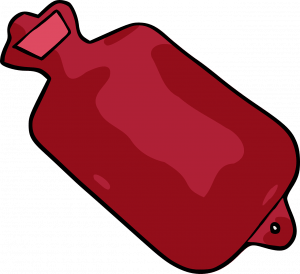The diagnosis of a bulging disc or herniated disc often triggers catastrophic beliefs of severe structural damage, which can lead to persistent/chronic pain patterns and a reliance on passive intervention… not to mention the millions of dollars of taxpayer’s money spent on back pain treatment each year. Lucky you’ve found experts in bulging disc treatment in Perth.
What is a disc?
An intervertebral disc is essentially a shock absorber. They are fused between each of the vertebrae or building blocks in your spine. The discs in your neck are smaller than the ones in your lower back, due to the size of the vertebrae and also the different forces they are subjected to. Discs have a tough outer portion (annulus fibrosus) and a soft inner portion (nucleus pulposus), a little like a jam donut. As your spine moves in one direction, your disc will compress or bulge a little on that side and stretch a little on the opposite side. The discs and the vertebrae are completely surrounded by strong ligaments, tendons, fascia and muscle and contrary to common belief, they simply CAN NOT slip out of place.
What is a bulging disc?
The discs in our back and neck are not immune to aging, they are subject to wear and tear just like the rest of us. NORMAL degenerative changes are often seen on imaging studies in people as young as teenagers and do not always correlate with back pain. Repetitive movements like bending, sustained postures like slouch sitting and heavy lifting can potentially cause disc injuries, especially in those of us who are deconditioned. Common injuries include bulging discs, herniated discs, disc protrusions and disc extrusions. These occur when part of the tough outer portion of the disc becomes weak or soft and bulges outside it’s normal margin. The good news is that bulging disc treatement is available and effective!
What is a herniated disc?
A herniated disc may have started as a bulging disc but a small tear usually allows some of the ‘gel’ to leak out from inside the disc. Commonly this will irritate one of the nearby spinal nerves and cause symptoms like pain and tingling.
How long will my bulging disc take to recover?
90% of bulging discs will recover on their own without the need for surgical intervention. Compare a bulging disc to an ankle sprain… If you injure your ankle, you will likely rest it for a couple of days, maybe strap it up, gradually load it again with a little bit of walking and progress back to jogging and running after a few weeks when it feels better. Unfortunately that concept of relative rest and progressive loading seems to be forgotten or ignored with low back injures. If your back injury has occurred due to repetitive bending, logic suggests that if you return to repetitive bending too quickly, you will likely interrupt the normal healing process. In saying that, bed rest can be disastrous so make sure you consult your Physiotherapist to ensure your disc injury is managed correctly. Most minor bulging discs recover within 3-6 weeks and more moderate bulging disc injuries can take up to 3 months. If your back pain hasn’t resolved within 3 months, I would recommend you see you seek Physiotherapy advice as you may receiving incorrect bulging disc treatment.




